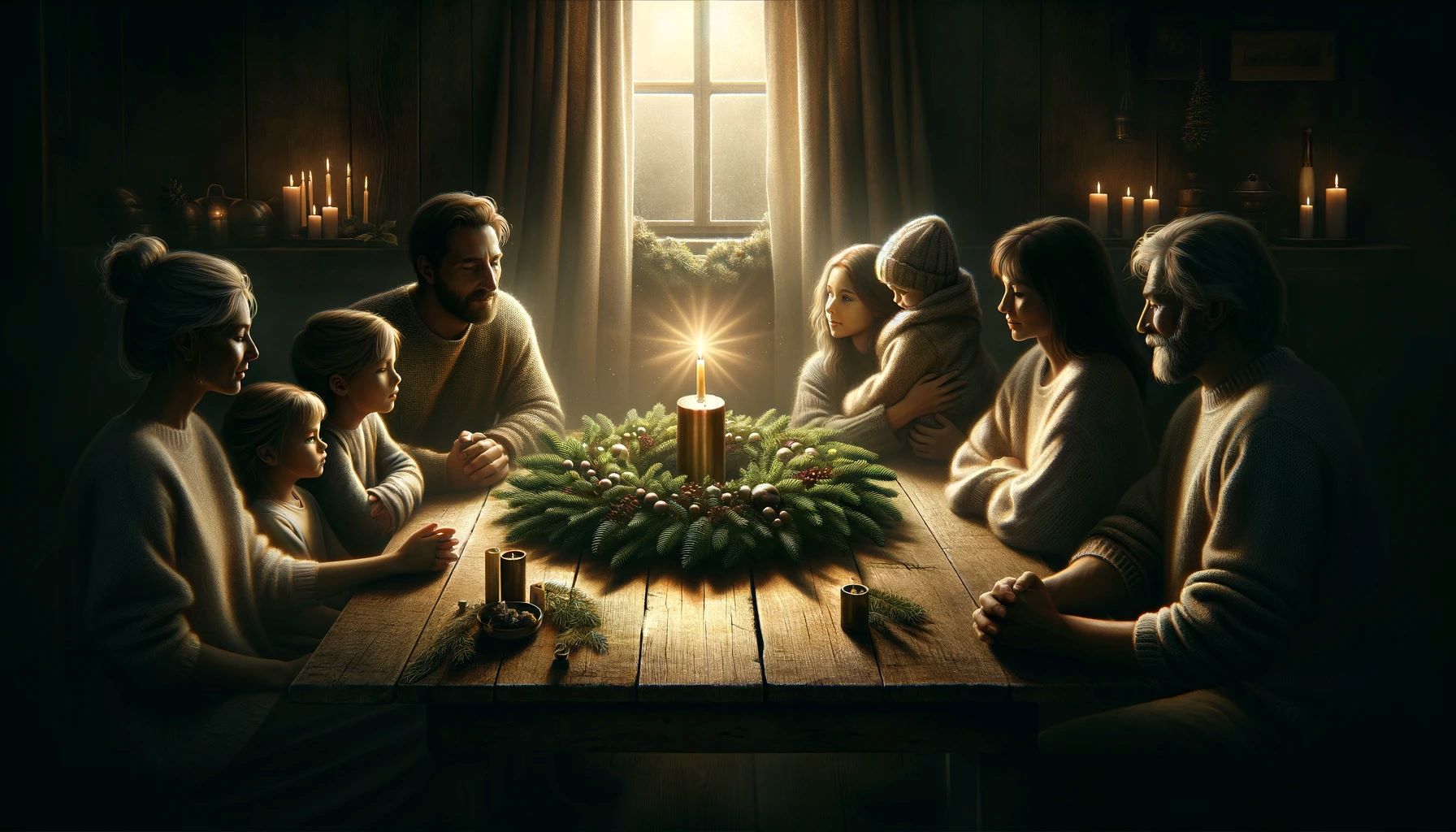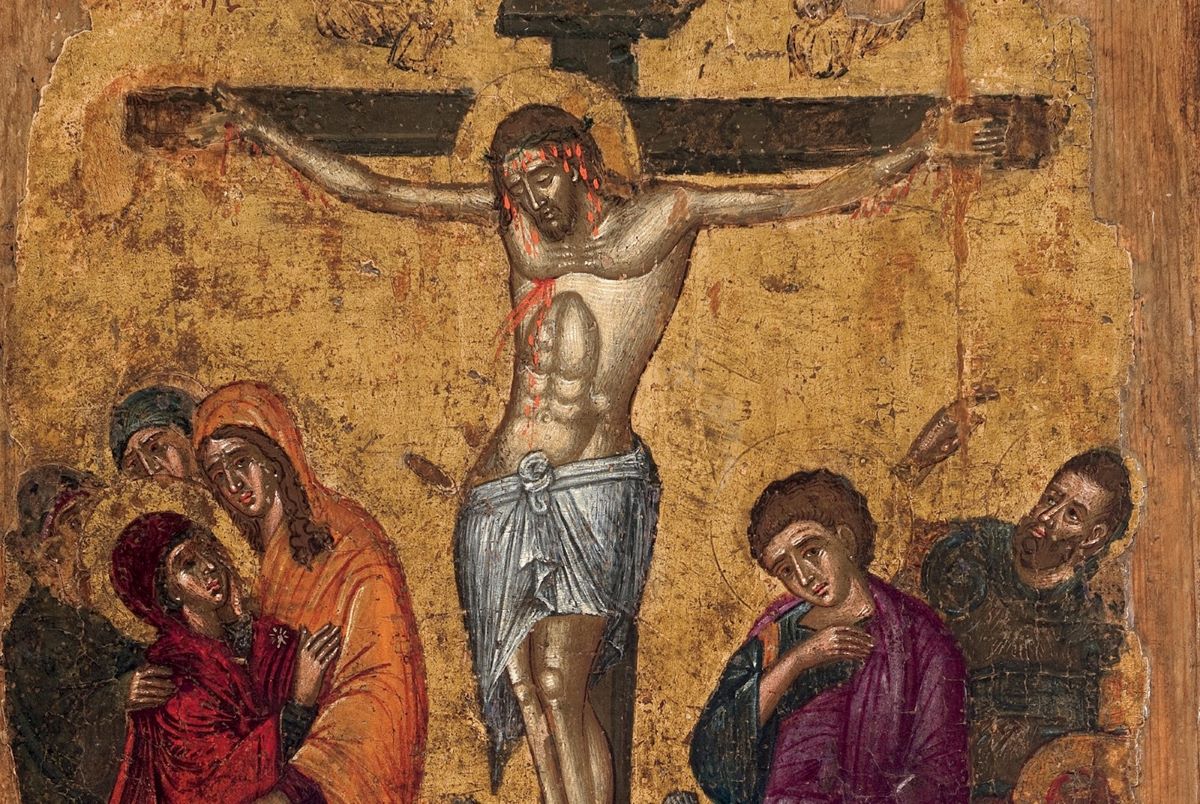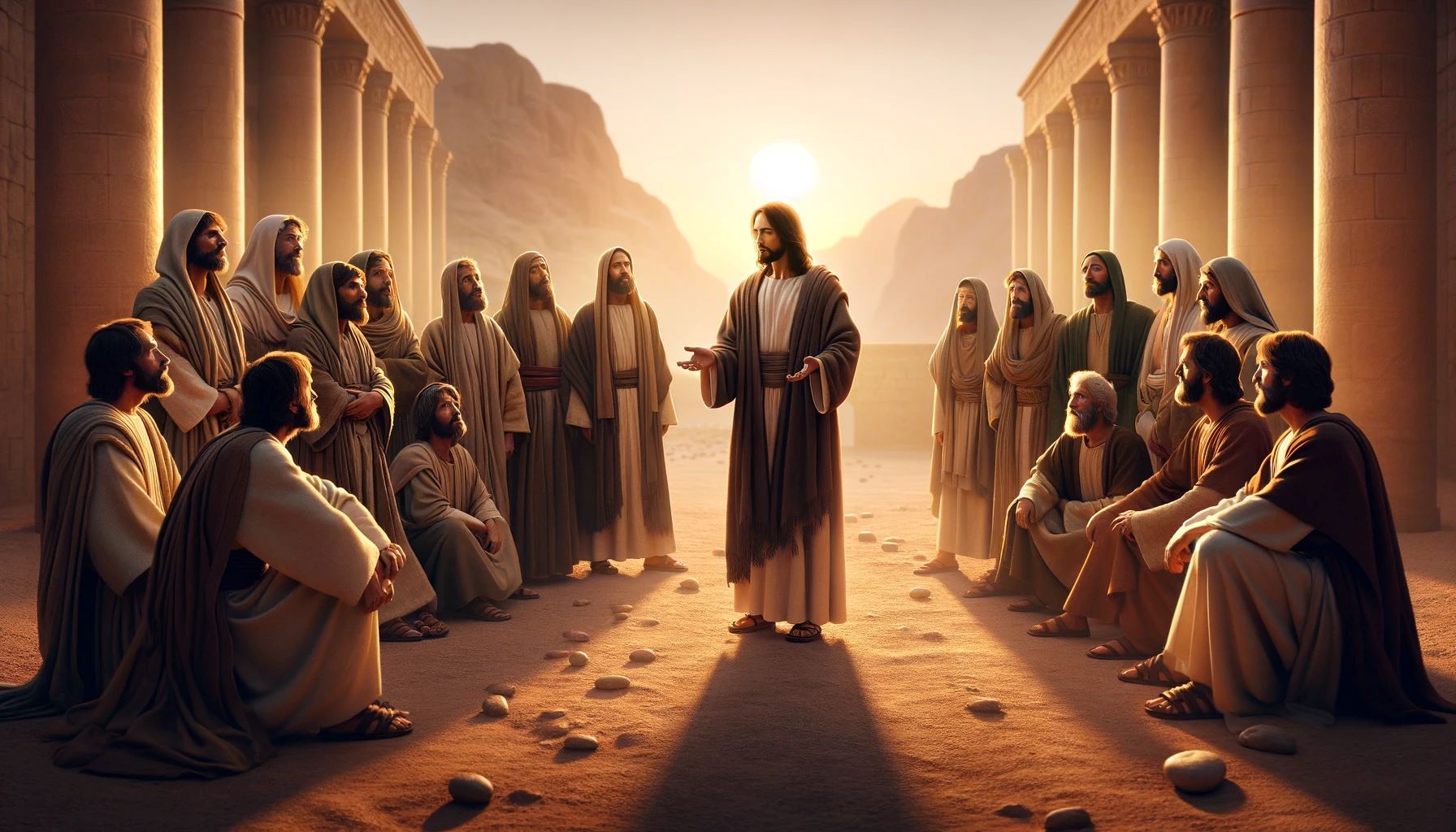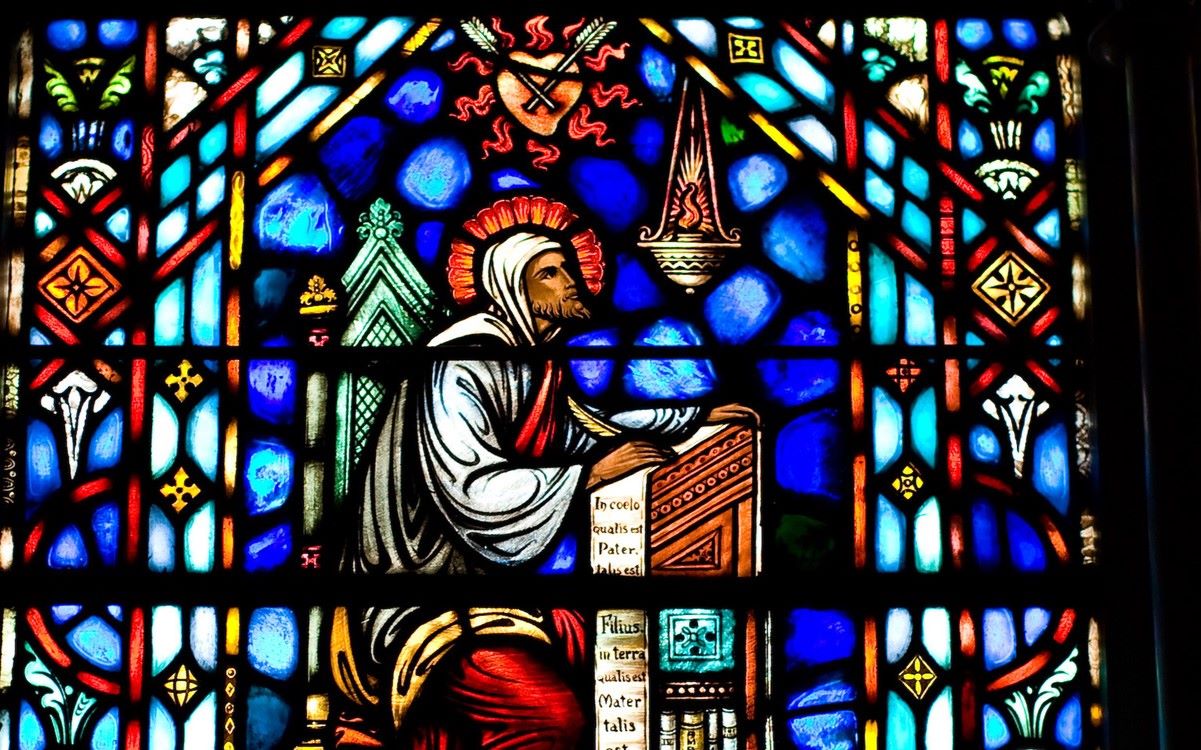Home>Special Themes>Why Is Advent Important?


Special Themes
Why Is Advent Important?
Published: February 12, 2024
Ericka Andersen, an editor at Christian.net, expertly merges digital strategy with content creation, focusing on faith and societal issues. Her communication skills enhance the platform's engaging narratives, fostering meaningful dialogue on belief's impact on society.
Discover the significance of Advent and its impact on the Christian faith. Explore the importance of this special theme and its role in the spiritual journey.
(Many of the links in this article redirect to a specific reviewed product. Your purchase of these products through affiliate links helps to generate commission for Christian.net, at no extra cost. Learn more)
Table of Contents
Introduction
Advent, a word derived from the Latin "adventus," meaning "coming" or "arrival," marks the beginning of the Christian liturgical year and is a period of spiritual preparation leading up to Christmas. This sacred season is observed by millions of Christians worldwide, transcending denominational boundaries and uniting believers in a shared sense of anticipation and hope.
During Advent, Christians reflect on the significance of the birth of Jesus Christ and eagerly await the celebration of His arrival on Christmas Day. This period is not only a time of joyful expectation but also a time for introspection, repentance, and spiritual growth. As the world is adorned with festive decorations and bustling with holiday preparations, the observance of Advent encourages believers to pause and contemplate the deeper meaning of the season.
The observance of Advent is not merely a historical or cultural tradition; it is a spiritual journey that invites individuals to prepare their hearts and minds for the coming of Christ. Through prayer, meditation, and acts of kindness, Christians seek to cultivate a spirit of humility, gratitude, and reverence during this sacred time. The themes of hope, peace, joy, and love are woven into the fabric of Advent, serving as guiding beacons for believers as they navigate the complexities of daily life.
As we delve into the history, significance, and traditions of Advent, it becomes evident that this season holds profound spiritual importance for Christians around the world. By understanding the roots of Advent and embracing its timeless customs, believers are able to enrich their faith, deepen their connection to the divine, and experience the true essence of Christmas in a profoundly meaningful way.
Read more: Why Is John The Baptist Important In Advent
The History of Advent
The history of Advent can be traced back to the early centuries of Christianity, rooted in the rich tapestry of religious traditions and observances that have evolved over time. While the specific origins of Advent as a liturgical season are not definitively documented, its emergence can be understood within the broader context of the Christian faith and the commemoration of significant events in the life of Jesus Christ.
The earliest references to a period of preparation for Christmas can be found in the writings of early Christian theologians and church fathers. In the fourth and fifth centuries, there was a growing recognition of the need for a dedicated time of spiritual readiness leading up to the celebration of Christ's birth. This period of preparation varied in length and intensity across different regions, reflecting the diverse practices of the early Christian communities.
The formal establishment of Advent as a distinct liturgical season began to take shape in the medieval period, with the Church recognizing the importance of setting aside a specific period for focused spiritual preparation. The duration of Advent was initially linked to the solemnity of Lent, with both seasons serving as times of penitence, prayer, and anticipation. Over time, the observance of Advent evolved to encompass a broader spectrum of themes, including the joyful anticipation of Christ's coming and the proclamation of hope and salvation.
The structure and symbolism of Advent as we know it today began to crystallize in the Western Christian tradition during the Middle Ages. The four-week duration of Advent, symbolizing the four centuries of waiting for the Messiah as prophesied in the Old Testament, became a central feature of the season. The liturgical color of Advent, often represented by the hues of purple or blue, further underscored the solemn yet hopeful nature of this period.
Throughout history, the observance of Advent has been shaped by the interplay of theological, cultural, and liturgical influences, reflecting the dynamic nature of Christian worship and spirituality. As the global Christian community continued to evolve, the significance of Advent as a time of spiritual preparation and joyful expectation remained steadfast, transcending geographical and denominational boundaries.
In contemporary times, the observance of Advent continues to hold profound significance for Christians, serving as a sacred bridge between the historical narrative of Christ's birth and the lived experience of faith in the present day. The history of Advent stands as a testament to the enduring legacy of Christian traditions and the enduring relevance of spiritual preparation in the journey of faith.
The historical roots of Advent provide a compelling backdrop for understanding its enduring significance and the timeless relevance of its themes in the lives of believers. As we explore the history of Advent, we gain a deeper appreciation for the spiritual heritage that continues to inspire and guide Christians in their quest for meaning, purpose, and connection to the divine.
The Significance of Advent in Christianity
The significance of Advent in Christianity extends far beyond the mere countdown to Christmas. This sacred season serves as a profound reminder of the central tenets of the Christian faith, encapsulating the essence of hope, anticipation, and spiritual preparation. At its core, Advent embodies the timeless message of the Incarnation, heralding the arrival of Jesus Christ as the embodiment of God's love and redemption for humanity.
Advent holds a pivotal place in the liturgical calendar, marking the beginning of the Christian year and setting the stage for the celebration of Christ's birth. It serves as a period of joyful expectation, inviting believers to immerse themselves in the narrative of salvation history and to rekindle their sense of wonder and awe at the miraculous events surrounding the Nativity.
The four-week duration of Advent is imbued with profound symbolism, representing the four centuries of waiting and longing for the promised Messiah as foretold in the Old Testament. This period of anticipation mirrors the collective yearning of humanity for divine intervention and the fulfillment of God's redemptive plan. Through the observance of Advent, Christians are invited to journey through the annals of biblical prophecy and to align their hearts with the ancient longing for the coming of the Savior.
The themes of hope, peace, joy, and love, symbolized by the lighting of the Advent wreath, permeate the fabric of this season, infusing it with spiritual depth and significance. Each week of Advent focuses on a specific theme, guiding believers on a transformative path of introspection and spiritual renewal. As the candles are progressively lit, the illumination serves as a poignant reminder of the gradual unfolding of God's divine purpose and the dawning of spiritual enlightenment in the hearts of the faithful.
Moreover, Advent serves as a counter-cultural beacon in a world often consumed by materialism and superficial distractions. Amidst the flurry of holiday preparations and commercialized festivities, the observance of Advent calls believers to embrace a spirit of simplicity, contemplation, and reverence. It offers a sacred space for individuals to recalibrate their priorities, to seek solace in prayer and meditation, and to cultivate a sense of inner stillness amidst the external clamor.
In essence, the significance of Advent in Christianity lies in its ability to rekindle the embers of faith, to awaken a sense of eager anticipation for the fulfillment of God's promises, and to foster a spirit of readiness for the coming of Christ. It serves as a spiritual compass, guiding believers through the labyrinth of daily life and pointing towards the eternal truths encapsulated in the birth of Jesus Christ. As Christians embark on this sacred journey of Advent, they are invited to embrace the profound significance of this season and to allow its transformative power to illuminate their hearts and minds with the radiant hope of Christmas.
Advent Traditions and Symbols
Advent is adorned with a rich tapestry of traditions and symbols that encapsulate the spiritual essence of this sacred season. These time-honored customs serve as poignant reminders of the profound themes of hope, anticipation, and preparation that define the Advent journey for Christians around the world.
Advent Wreath:
At the heart of Advent traditions stands the iconic Advent wreath, a circular arrangement of evergreen foliage adorned with four candles, typically three purple and one pink, symbolizing the four weeks of Advent. The circular shape of the wreath represents the eternal nature of God and the unending cycle of His love and grace. Each candle holds symbolic significance, with the first candle representing hope, the second symbolizing peace, the pink candle signifying joy, and the fourth embodying love. As the candles are progressively lit during the Sundays of Advent, the increasing illumination serves as a visual representation of the growing anticipation and spiritual enlightenment leading up to Christmas.
Read more: Why Is Lent Important
Advent Calendar:
The Advent calendar, a beloved tradition in many households, provides a delightful way to count down the days until Christmas. Whether in the form of paper calendars with hidden treats or digital versions with interactive surprises, the Advent calendar serves as a daily reminder of the approaching celebration of Christ's birth. Each day unveils a new window or compartment, inviting individuals to engage in a moment of reflection, prayer, or acts of kindness as they eagerly anticipate the arrival of Christmas.
Nativity Scene:
The display of a Nativity scene, also known as a crèche, holds a central place in Advent traditions, serving as a visual tableau of the birth of Jesus Christ. This cherished depiction typically includes figurines of the Holy Family, shepherds, angels, and animals, evoking the timeless narrative of the Incarnation. The gradual addition of these figures throughout Advent culminates in the placement of the infant Jesus on Christmas Day, symbolizing the fulfillment of God's promise and the dawning of salvation for humanity.
Advent Hymns and Carols:
The singing of Advent hymns and carols forms an integral part of the seasonal observance, infusing homes and churches with melodies that echo the themes of longing, anticipation, and joy. From the haunting strains of "O Come, O Come, Emmanuel" to the jubilant refrains of "Joy to the World," these musical expressions kindle the spirit of Advent and invite believers to immerse themselves in the timeless melodies that herald the coming of Christ.
Advent Devotions and Writings:
Throughout Advent, many individuals engage in daily devotions, readings, and reflections that center on the themes of hope, peace, joy, and love. From the timeless words of prophets and theologians to contemporary reflections on the meaning of Advent, these spiritual writings serve as guiding lights, illuminating the path of believers as they journey through this sacred season.
The traditions and symbols of Advent weave a tapestry of spiritual significance, inviting believers to embrace the timeless themes of faith, anticipation, and redemption. As Christians immerse themselves in these cherished customs, they are drawn into a deeper awareness of the profound meaning of Christmas and the transformative power of the Advent season.
Read more: Why Are The Gospels Important?
How Advent Prepares Christians for Christmas
Advent serves as a spiritual incubator, nurturing the hearts and minds of Christians in preparation for the joyous celebration of Christmas. This sacred season, with its rich tapestry of traditions and profound themes, plays a pivotal role in shaping the collective consciousness of believers as they journey towards the commemoration of Christ's birth.
First and foremost, Advent fosters a spirit of anticipation and longing, mirroring the ancient yearning for the Messiah's arrival. Through the lighting of the Advent candles and the progressive unfolding of the season, Christians are invited to cultivate a sense of eager expectation, akin to the anticipation felt by the shepherds and the Magi awaiting the revelation of the newborn King. This sense of anticipation infuses the Christmas celebration with a deeper resonance, allowing believers to approach the Nativity with hearts aglow with the radiant hope of the Advent season.
Moreover, Advent serves as a time of spiritual preparation, prompting believers to engage in introspection, repentance, and renewal. The themes of hope, peace, joy, and love, symbolized by the candles of the Advent wreath, guide individuals on a transformative journey of self-examination and spiritual growth. As Christians reflect on the profound significance of these themes, they are inspired to realign their priorities, to seek reconciliation and healing, and to embrace a spirit of generosity and compassion in anticipation of the arrival of the Christ child.
Furthermore, Advent offers a counter-cultural oasis amidst the hustle and bustle of the secular holiday season. In a world often consumed by materialism and superficial distractions, the observance of Advent calls believers to embrace a spirit of simplicity, contemplation, and reverence. Through the timeless traditions of the Advent wreath, the Nativity scene, and the singing of hymns and carols, Christians are invited to create sacred spaces within their homes and communities, where the true meaning of Christmas can be cherished and celebrated.
In essence, Advent prepares Christians for Christmas by nurturing a spirit of eager anticipation, fostering a sense of spiritual readiness, and providing a sanctuary of contemplation amidst the clamor of the secular world. As believers immerse themselves in the timeless traditions and themes of Advent, they are equipped to approach the celebration of Christ's birth with hearts aglow with the radiant hope, profound joy, and transformative love that define the essence of Christmas.
The Spiritual Importance of Advent
The spiritual importance of Advent transcends the realm of mere tradition and observance, delving into the profound depths of Christian faith and spirituality. At its core, Advent serves as a sacred bridge between the historical narrative of Christ's birth and the lived experience of believers, offering a transformative journey that resonates with the timeless themes of hope, anticipation, and redemption.
One of the central pillars of the spiritual importance of Advent lies in its capacity to kindle the flame of hope in the hearts of believers. As the world grapples with uncertainty, adversity, and longing for meaning, the season of Advent emerges as a beacon of radiant hope, illuminating the path of individuals with the promise of God's unfailing love and redemptive grace. The lighting of the Advent candles, each representing a distinct theme of hope, peace, joy, and love, serves as a poignant reminder of the enduring hope that permeates the Christian narrative, infusing the hearts of believers with a sense of eager anticipation for the fulfillment of God's promises.
Furthermore, the spiritual importance of Advent is intricately woven with the theme of spiritual preparation and renewal. As Christians embark on this sacred journey, they are invited to engage in introspection, repentance, and acts of compassion, aligning their hearts with the profound message of the Incarnation. The themes of hope, peace, joy, and love, symbolized by the progressive lighting of the Advent candles, guide believers on a transformative path of spiritual introspection, prompting them to realign their priorities, seek reconciliation, and embrace a spirit of generosity and kindness.
Moreover, Advent serves as a spiritual oasis amidst the frenetic pace of modern life, offering believers a sanctuary of contemplation and reverence. In a world often besieged by materialism and superficial distractions, the observance of Advent calls individuals to embrace a spirit of simplicity, mindfulness, and sacred anticipation. Through the timeless traditions of the Advent wreath, the Nativity scene, and the singing of hymns and carols, Christians are invited to create sacred spaces within their homes and communities, where the true meaning of Christmas can be cherished and celebrated.
In essence, the spiritual importance of Advent lies in its ability to awaken the dormant embers of faith, to infuse the hearts of believers with the radiant hope of the Christmas narrative, and to provide a transformative journey that resonates with the eternal truths of the Christian faith. As individuals immerse themselves in the spiritual tapestry of Advent, they are enveloped in a sacred embrace that nurtures their souls, ignites their spirits, and prepares them to embrace the profound significance of Christ's birth with hearts aglow with the transformative love and radiant hope that define the essence of Christmas.
Conclusion
In conclusion, the observance of Advent stands as a timeless testament to the enduring significance of spiritual preparation and joyful anticipation in the Christian faith. As believers embark on this sacred journey, they are enveloped in a tapestry of traditions, symbols, and themes that resonate with the profound essence of hope, peace, joy, and love. The historical roots of Advent, intertwined with the rich traditions of the Church, serve as a poignant reminder of the enduring legacy of faith and the enduring relevance of spiritual readiness in the journey of believers.
The spiritual importance of Advent extends far beyond the countdown to Christmas, offering a transformative path that nurtures the hearts and minds of Christians, preparing them to embrace the joyous celebration of Christ's birth with a profound sense of eager anticipation and spiritual readiness. Through the lighting of the Advent candles, the display of the Nativity scene, the singing of hymns and carols, and the engagement in daily devotions and reflections, believers are invited to immerse themselves in a sacred journey that illuminates the path of faith with the radiant hope and transformative love that define the essence of Christmas.
As the world is adorned with festive decorations and bustling with holiday preparations, the observance of Advent calls believers to pause and contemplate the deeper meaning of the season, fostering a spirit of simplicity, contemplation, and reverence amidst the external clamor. It offers a counter-cultural oasis, inviting individuals to recalibrate their priorities, seek solace in prayer and meditation, and cultivate a sense of inner stillness amidst the external distractions.
In essence, Advent serves as a spiritual compass, guiding believers through the labyrinth of daily life and pointing towards the eternal truths encapsulated in the birth of Jesus Christ. It nurtures a spirit of eager anticipation, fosters a sense of spiritual readiness, and provides a sanctuary of contemplation amidst the clamor of the secular world. As believers immerse themselves in the timeless traditions and themes of Advent, they are equipped to approach the celebration of Christ's birth with hearts aglow with the radiant hope, profound joy, and transformative love that define the essence of Christmas.
The observance of Advent, with its profound historical roots, spiritual significance, and transformative power, continues to inspire and guide Christians in their quest for meaning, purpose, and connection to the divine. As believers journey through this sacred season, they are enveloped in a sacred embrace that nurtures their souls, ignites their spirits, and prepares them to embrace the profound significance of Christ's birth with hearts aglow with the transformative love and radiant hope that define the essence of Christmas.













